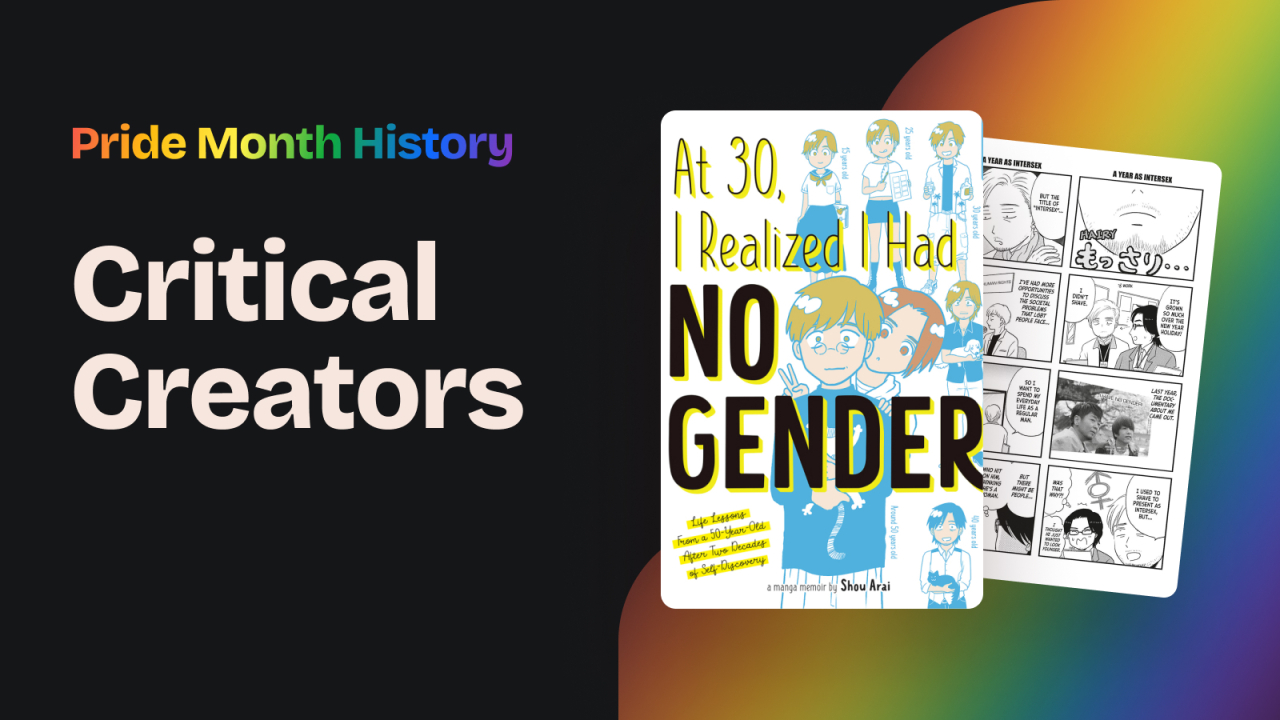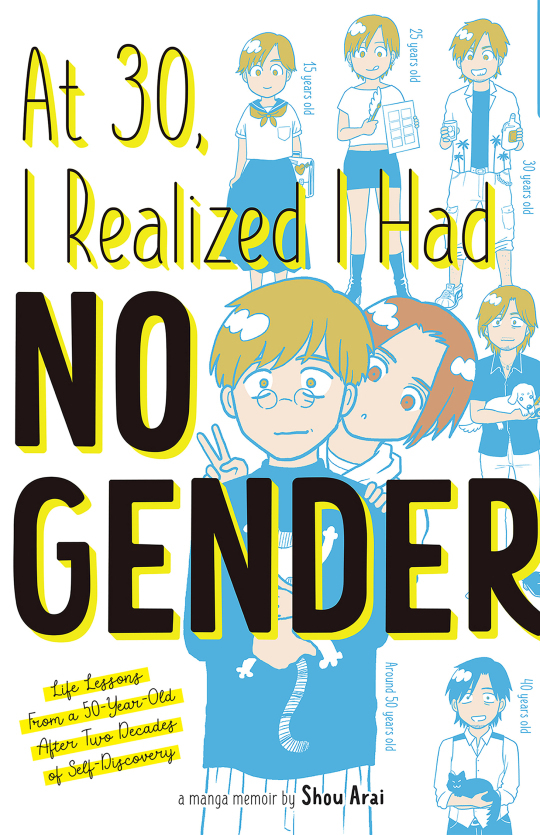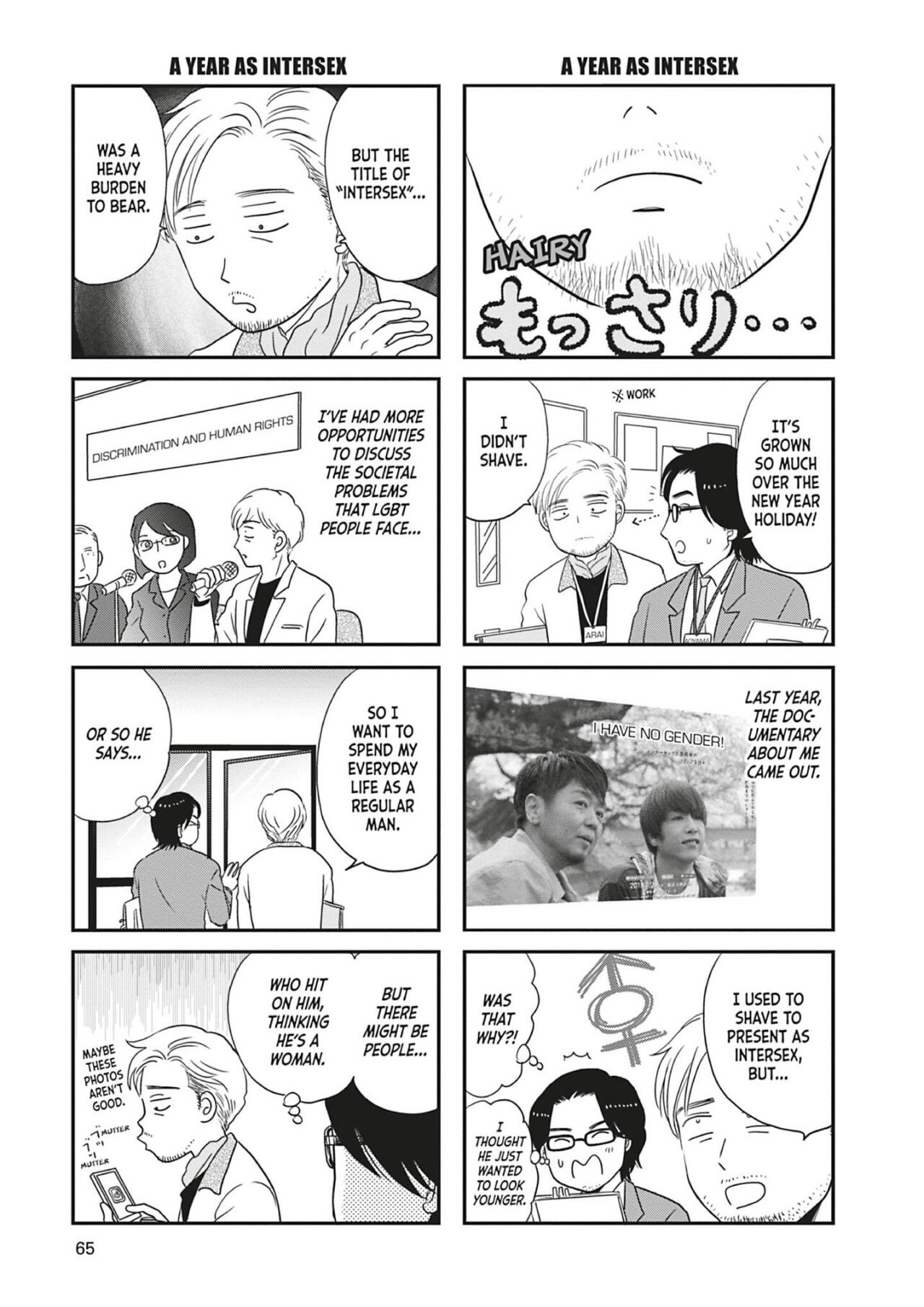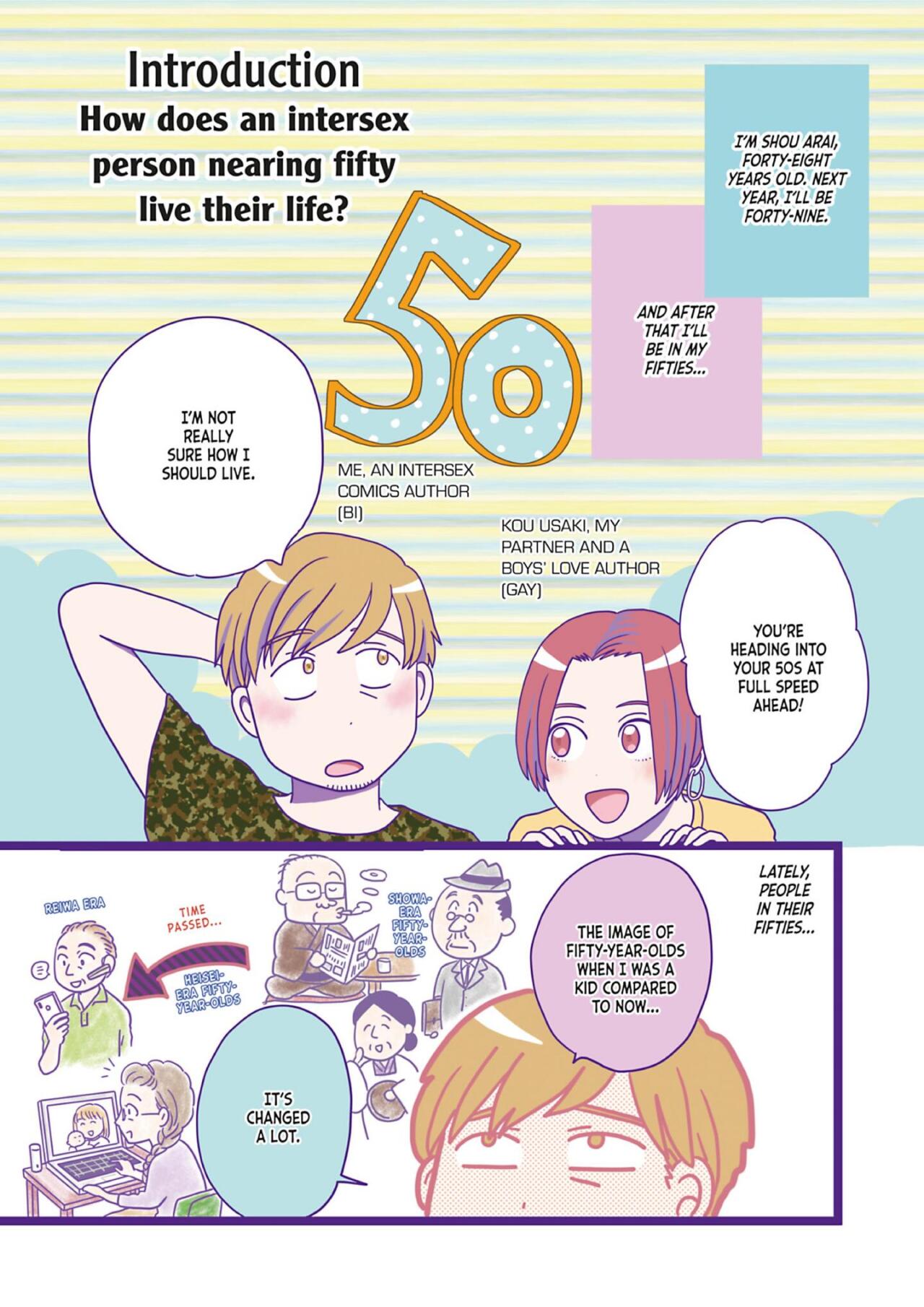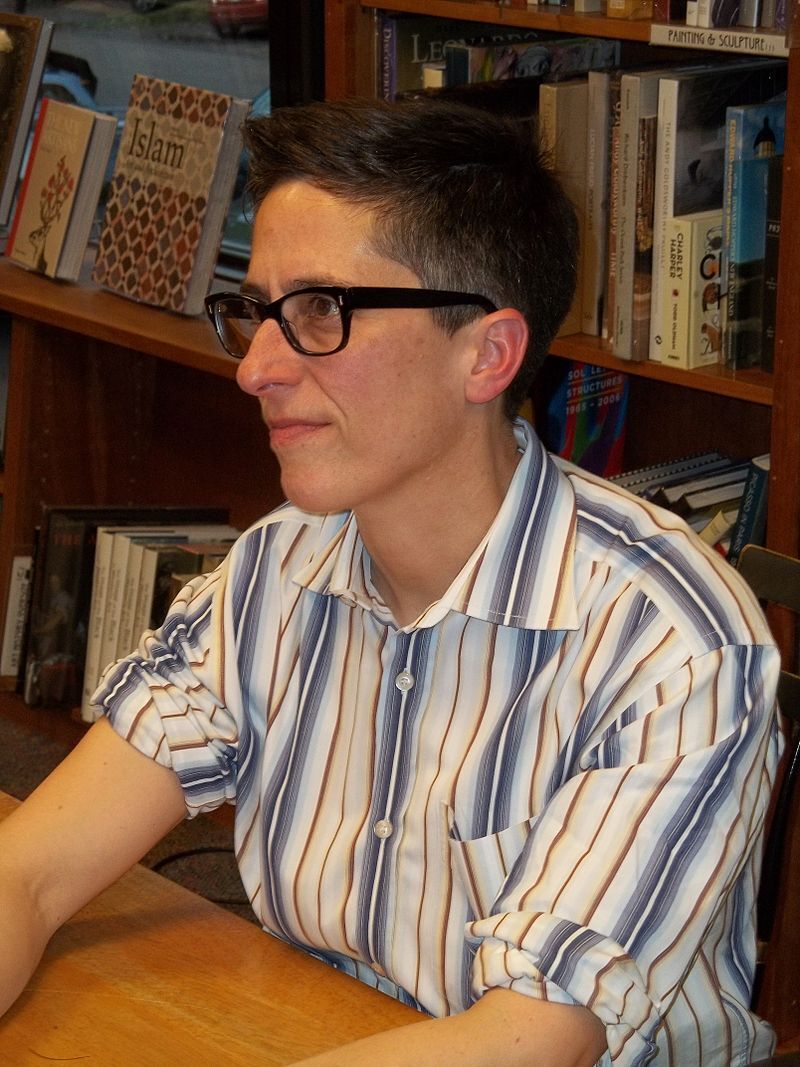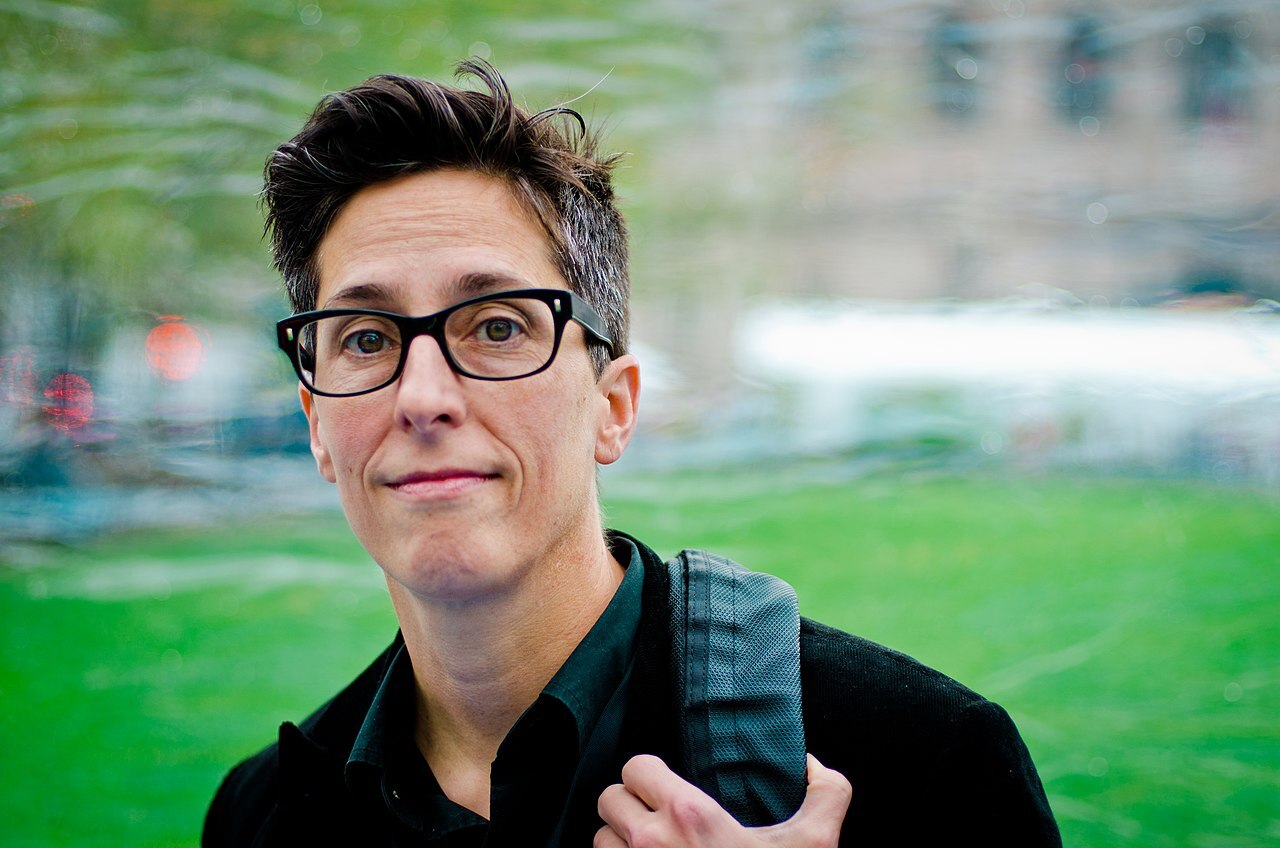Last week for our Pride Month history series, we looked at the history of LGBTQ+ representation and presentation in manga. For today's article, we're looking into two creators who have made waves using their own lived experiences as the focus of their works, Shou Arai and Alison Bechdel. Truly iconic creators, both have spent many years creating works based on their own experiences and lean into activism and providing a voice for their communities. Creators like these two are monumental in LGBTQ+ voices being heard and understood and can help educate society about issues facing LGBTQ+ communities.
Shou Arai is defined as an "Essay Mangaka" known best for a manga called At 30, I Realized I Had No Gender, published in English by Tokyopop. From birth until the age of 30, Shou had been living as a woman and even married. However, after finding out they were intersex due to a chromosomal abnormality, they decided to explore the lives of sexual minorities in Japan. Shou also chose to not to choose life as either gender, opting to embrace life as a queer person.
In a documentary called "No Gender! The Queer Life of an Intersex Manga Artist", Shou said they like seeing themselves as the main character, as other manga are fantasies that anyone could create. After seeing the work of Essay Mangaka, who make manga that are more about commentaries on real life like biographies and auto-biographies, they felt these were more realistic and appealing. The documentary looks into Arai's life and explores the idea of love as a sexual minority.
I made sure to watch this documentary, and I really enjoyed watching it. As a non-binary person myself, it was fascinating to see someone else living a life that isn't on either end of the binary. As an aspiring mangaka, it was also interesting seeing something talking about a smaller niche within the manga industry that we don't hear much about here in the west. Not all sexual minorities have the ability to voice their experiences, so people like Shou stepping up and sharing those things is a precious act to the LGBTQ+ community.
Shou also teaches manga, along with their assistant of ten years, Koh Usaki, and throughout the documentary, we also see insights into their activism in the LGBTQ+ communities in different countries. During a parade in Hong Kong, Shou walked with another intersex individual, small Luk, the first public intersex person in Hong Kong. Afterwards, they share a conversation about their experiences, feelings about intersex life, and self-expression.
As expected, there were supporters, and protesters at the parade and other events. It's an interesting window into how other countries are still not as accepting of LGBTQ+ individuals in their societies. This type of activism is important in making sure future generations don't have to live with such discrimination in their lifetimes. The documentary was crowdfunded and raised over $18,000 if the $37,000 needed for screenings via the site Motion Gallery. A trailer can be found here on the Motion Gallery's YouTube channel.
Another creator that has been a force for good in the LGBTQ+ and women's creator community is Alison Bechdel. Born in 1960, Bechdel is an influential American cartoonist known for her exploration of sexuality and gender non-conformity in her work. She came out as a lesbian at age 19, and her personal experiences deeply influence her art. Bechdel's primary goal is to depict women, especially lesbians, as regular human beings. She first gained fame with her long-running comic strip Dykes to Watch Out For and achieved critical and commercial success with her 2006 graphic memoir "Fun Home," which was later adapted into a Tony Award-winning musical.
In the summer of 1981, Bechdel moved to Manhattan and, despite rejections from several art schools, began working various office jobs in the publishing industry. Her comic strip Dykes to Watch Out For started as a single drawing published in the feminist newspaper WomaNews in June 1983. The strip eventually evolved from single-panel drawings to multi-paneled strips, eventually becoming a series of posters and postcards. This work provided a glimpse into the urban lesbian community and gained traction in various publications.
Initially, Dykes to Watch Out For featured unconnected strips without a regular cast or serialized storyline. Over time, it developed a focus on a consistent group of lesbian characters, and in 1986, Firebrand Books published a collection of the strips. By 1987, Bechdel had introduced recurring characters like Mo and her friends, cementing the strip's structure. The strip's success allowed Bechdel to quit her day job in 1990 and work on it full-time. Additionally, Bechdel's work originated the Bechdel Test, a widely used metric in cultural discussions about film.
In 2006, Bechdel released "Fun Home: A Family Tragicomic," an autobiographical work detailing her childhood and her relationship with her father, particularly around his suicide. The memoir was critically acclaimed, becoming a finalist for the National Book Critics Circle Award and winning the Eisner Award for Best Reality-Based Work in 2007. The book's impact reached beyond literature; it was controversially selected for a summer reading program at the College of Charleston, leading to political debates. The memoir was adapted into a successful musical that premiered Off-Broadway in 2013.
Beyond her work in comics, Bechdel has been recognized for her contributions to language and education. In November 2006, she was invited to join the Usage Panel of the American Heritage Dictionary. In 2012, she served as a Mellon Residential Fellow for Arts and Practice at the University of Chicago, where she co-taught a course on comics and autobiography. Her contributions to the arts were further recognized in 2017 when she was appointed Vermont's third Cartoonist Laureate.
Bechdel's work, characterized by its depth and relatability, has had a lasting impact on the comic industry and cultural discussions about gender and sexuality. Her ability to intertwine personal narrative with broader social issues has earned her numerous accolades, including a MacArthur "Genius" Award in 2014. Her legacy continues to inspire and influence new generations of artists and readers.
Please check these sources for today's information as well as to learn more about Shou Arai and Alison Bechdel.
- Shou Arai - Myanimelist.net
- Intersex Manga Creator Shō Arai Publishes Book About Sexual Minorities
-
Intersex Manga Creator Stars in Documentary About Personal Experiences
- Women’s History Month: Cartoonist Alison Bechdel on Finding Truth
- The Art of Alison Bechdel: A Look at Her Life and Work
-
Alison Bechdel - Wikipedia
- Above photos by
See you again soon, and happy Pride Month 2024 from all of us here at GlobalComix!
